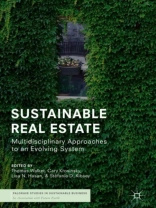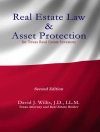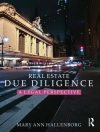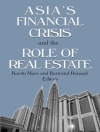This edited collection broadens the definition of sustainable real estate based on industry trends, research, and the Paris Climate Agreements. Discussions encompass existing and new buildings throughout their life cycle, the financing of their development and operations, and their impact on the surrounding environments and communities. This broader perspective provides a better understanding of the interconnected nature of the environmental, societal, communal, political, and financial issues affecting sustainable real estate, revealing the wide-ranging impact of practitioners’ decisions on the sustainable real estate system. Bringing together carefully selected articles from leading global academic and practitioner experts from urban planning, design, construction, and finance, this collection brings to light new opportunities and innovative transdisciplinary solutions to as-yet unresolved problems.
Inhoudsopgave
1. Introduction.- 2. The Relevance of Real Estate in Solving Climate Change.- 3. Evolutions in Sustainability and Sustainable Real Estate.- Part I Regulatory Approaches.- 4. Public Regulatory Trends in Sustainable Real Estate.- 5. A Policy Framework for Sustainable Real Estate in the European Union.- Part II Market-Driven Approaches.- 6. Information or Marketing? Lessons from the History of Private-Sector Green Building Labelling.- 7. Global Real Estate Sustainability Benchmarking: An Essential Tool for Real Estate Management.- 8. Business Case for Green Buildings for Owner-Operators.- 9. Sustainability as an Organizational Effectiveness Tool.- Part III Delivering Affordable, Reliable, Sustainable Energy.- 10. Building Energy Simulation and the Design of Sustainable and Resilient Buildings.- 11. Driving Investment in High-Performance Commercial Buildings.- 12. Financing Rooftop Solar for Single-Family Rental Properties.- Part IV Sustainable Cities and Communities.- 13. A Case for Sustainable Affordable Housing in the United States.- 14. Passive House Standard: A Strategic Mean for Building Affordable Sustainable Housing in Nova Scotia.- 15. Sustainable Investing in Community Sporting Facilities.- 16. Sustainable Real Estate in the Middle East: Challenges and Future Trends.- 17. Sustainable Community Development in Nigeria: The Role of Real Estate Development.
Over de auteur
Thomas Walker has published numerous articles and books in the area of risk management, sustainable finance, and shareholder litigation. He previously directed the David O’Brien Centre for Sustainable Enterprise and has served as the chair of the Finance Department and Associate Dean, Research, at Concordia University, Canada.
Cary Krosinsky writes, advises, and teaches at Yale University, USA, and Brown University, USA. At Brown, his teaching helps support the Brown University Sustainable Investment Fund within the Endowment.
Lisa N. Hasan is a practicing architect. She holds a Master of Architecture degree from Mc Gill University, Canada, and an MBA from Concordia University, Canada. Her work has focused on green buildings and the development and implementation of sustainable practices for both public and private real estate owners, managers, and investors.
Stéfanie D. Kibsey coordinates the Sustainable Investment Professional Certification program at the John Molson School of Business at Concordia University, Canada. She previously worked at the David O’Brien Centre for Sustainable Enterprise and La Caisse de dépôt et placement du Québec. She specializes in connecting sustainability with finance.












